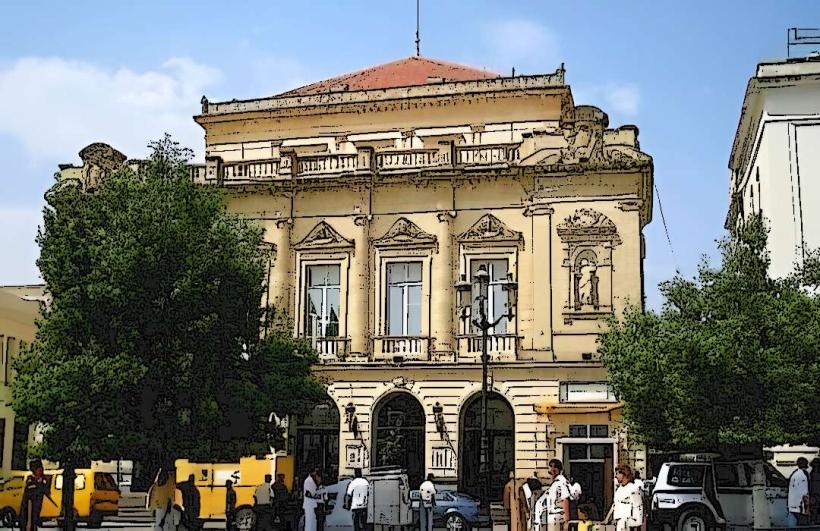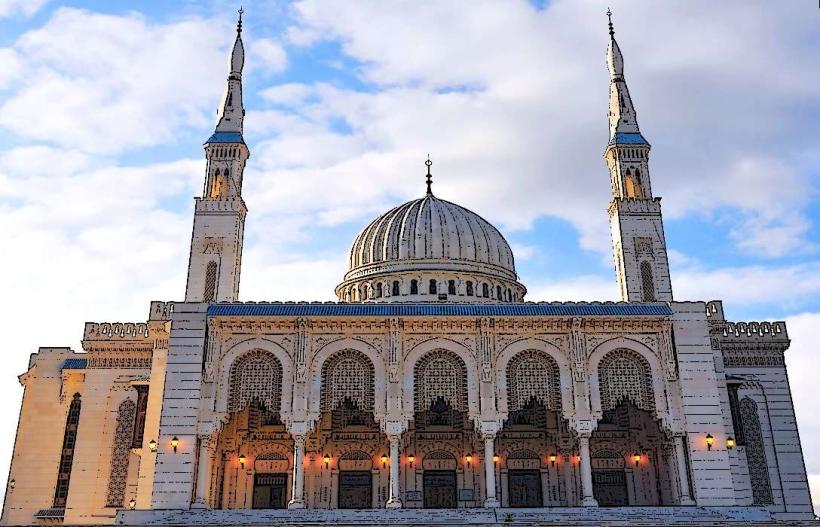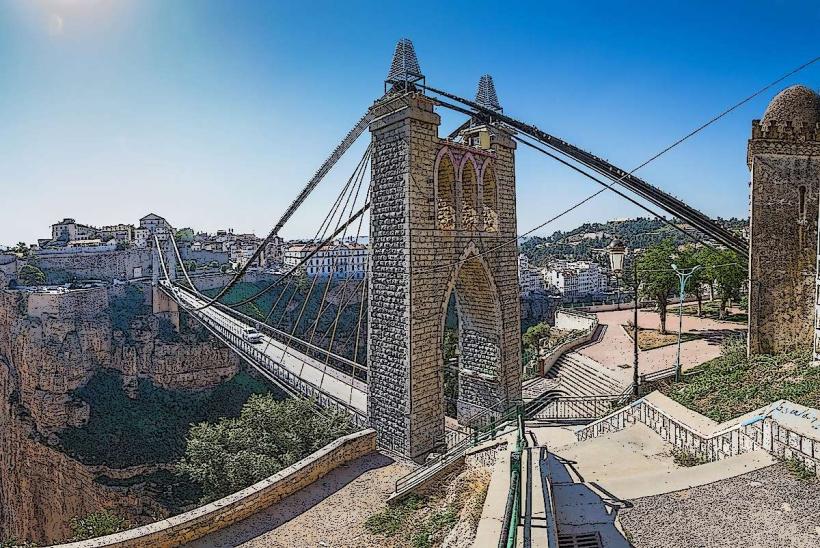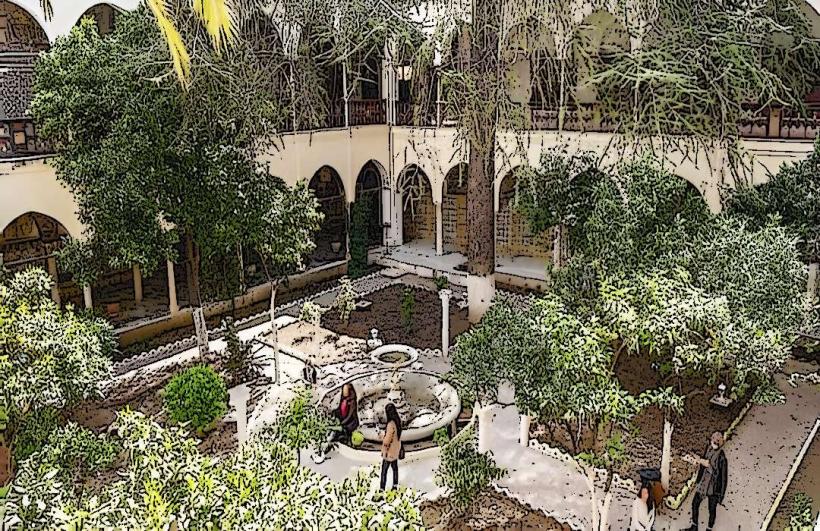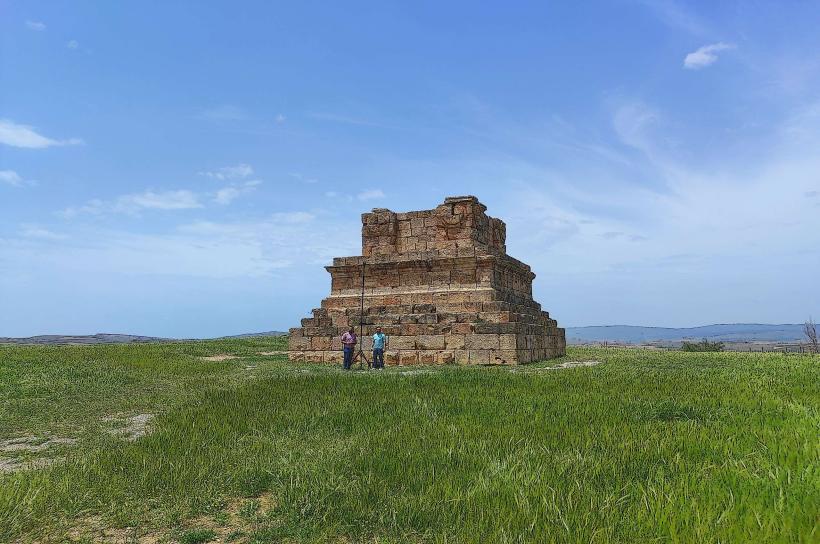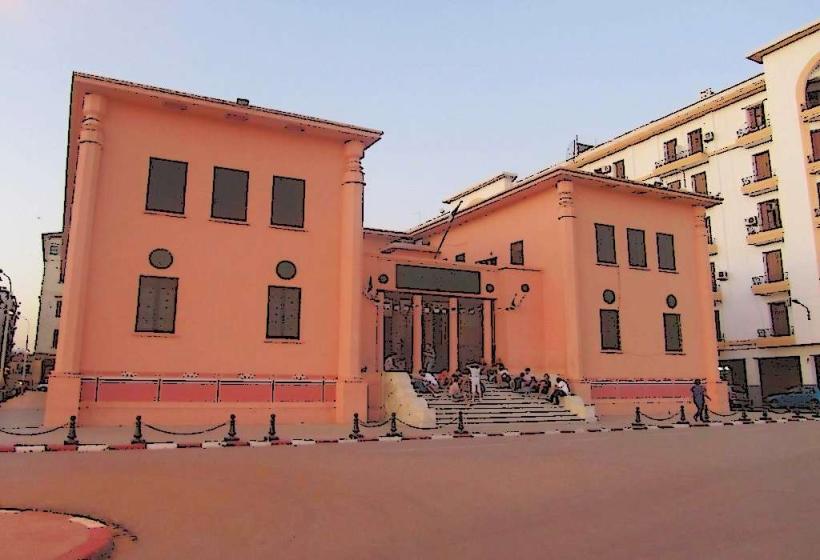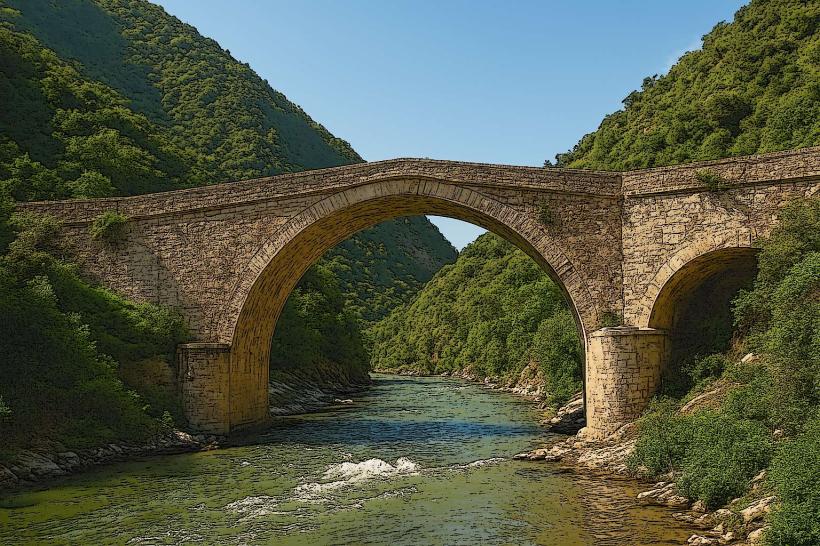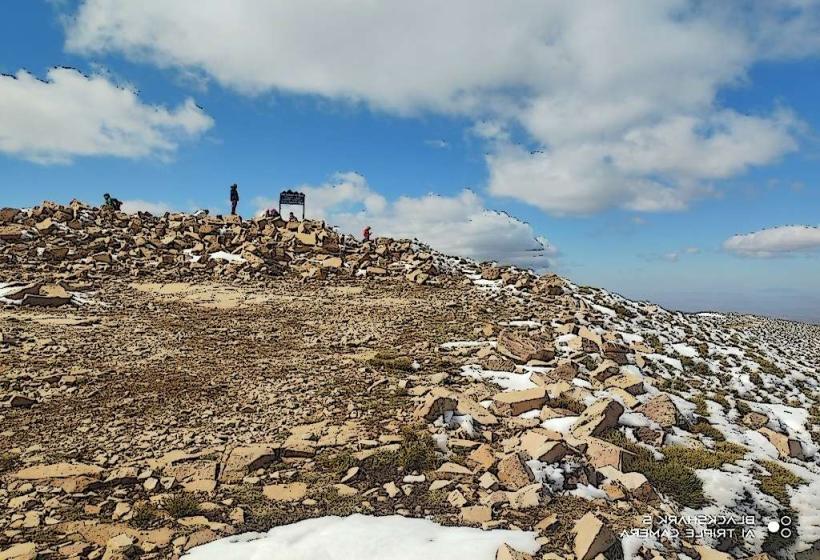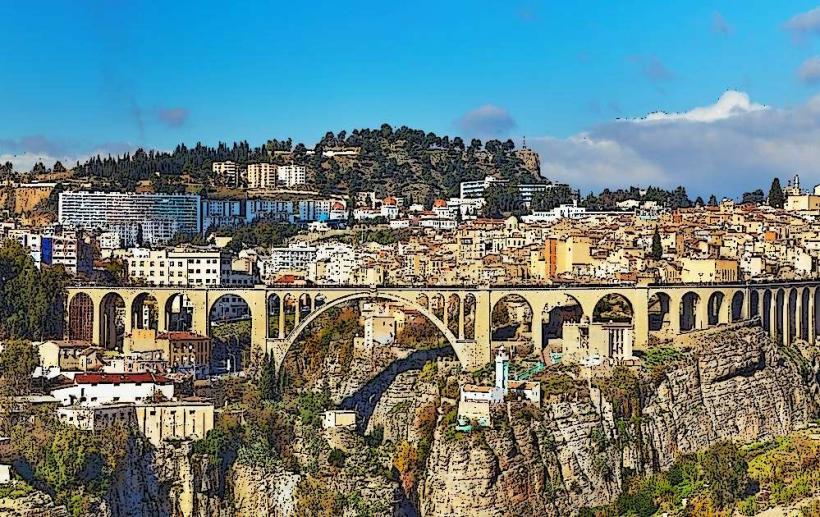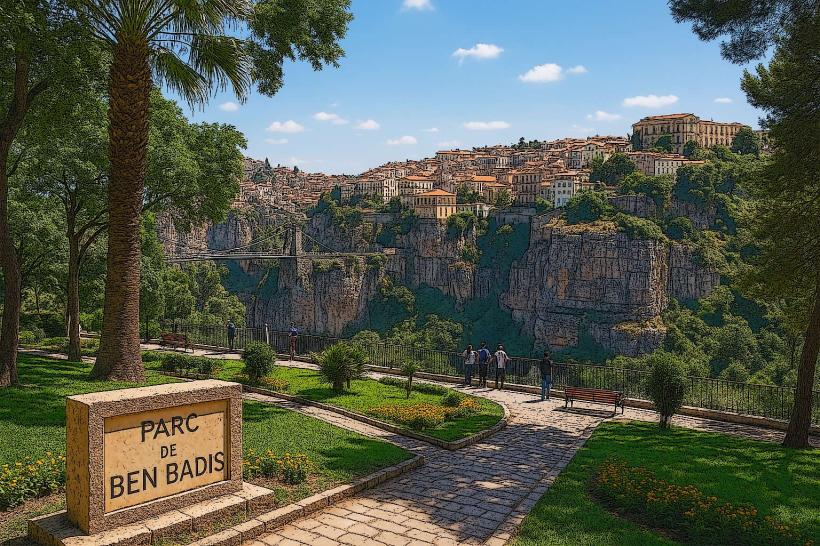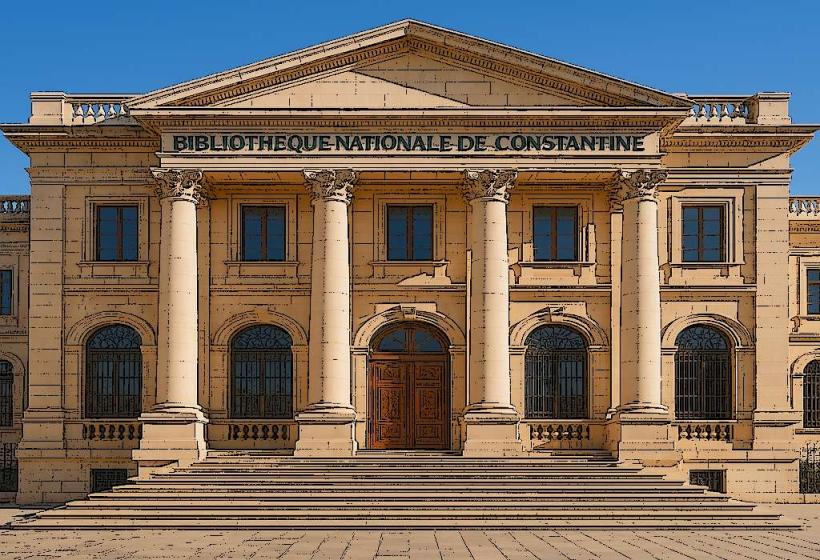Information
Landmark: Monument to MartyrsCity: Constantine
Country: Algeria
Continent: Africa
Monument to Martyrs, Constantine, Algeria, Africa
The Monument to Martyrs is a war memorial located in Constantine, Algeria. It commemorates Algerian soldiers who died during the Algerian War of Independence.
Visual Characteristics
The monument is a concrete structure shaped like three palm fronds, symbolizing life and victory. It stands 70 meters tall. At its base is an eternal flame and an underground museum. The exterior is primarily unpainted concrete, with the fronds meeting at a central point.
Location & Access Logistics
The monument is situated on a plateau overlooking the city of Constantine, approximately 2 kilometers west of the city center. Access is via the N7 national road. Parking is available at the monument's base. Public transport options include local bus lines that stop near the plateau, requiring a short walk to the site.
Historical & Ecological Origin
Construction began in 1981 and was completed in 1984. The architect was Abderrahmane Bouchama. The monument's purpose is to honor the martyrs of the Algerian War of Independence (1954-1962).
Key Highlights & Activities
Visitors can explore the underground museum detailing the history of the war. Observation decks offer panoramic views of Constantine. The eternal flame is a central feature. Photography of the monument and the city skyline is permitted.
Infrastructure & Amenities
Restrooms are available within the museum complex. Limited shade is provided by the monument's structure. Cell phone signal (4G/5G) is generally good in this elevated location. No food vendors are present directly at the monument; options are available in the city center.
Best Time to Visit
For photography, late afternoon provides favorable lighting conditions as the sun sets behind the monument. The best months for weather are typically April to June and September to October, avoiding the summer heat. No tide considerations apply.
Facts & Legends
A unique aspect of the monument is the underground tomb of the Unknown Soldier, located beneath the eternal flame. Local lore suggests the flame is fueled by a natural gas source, though this is unverified.
Nearby Landmarks
- Casbah of Constantine (1.5km East)
- Sidi M'cid Bridge (2km Southeast)
- Palace of Ahmed Bey (2.5km East)
- Roman Aqueduct (3km Northeast)

